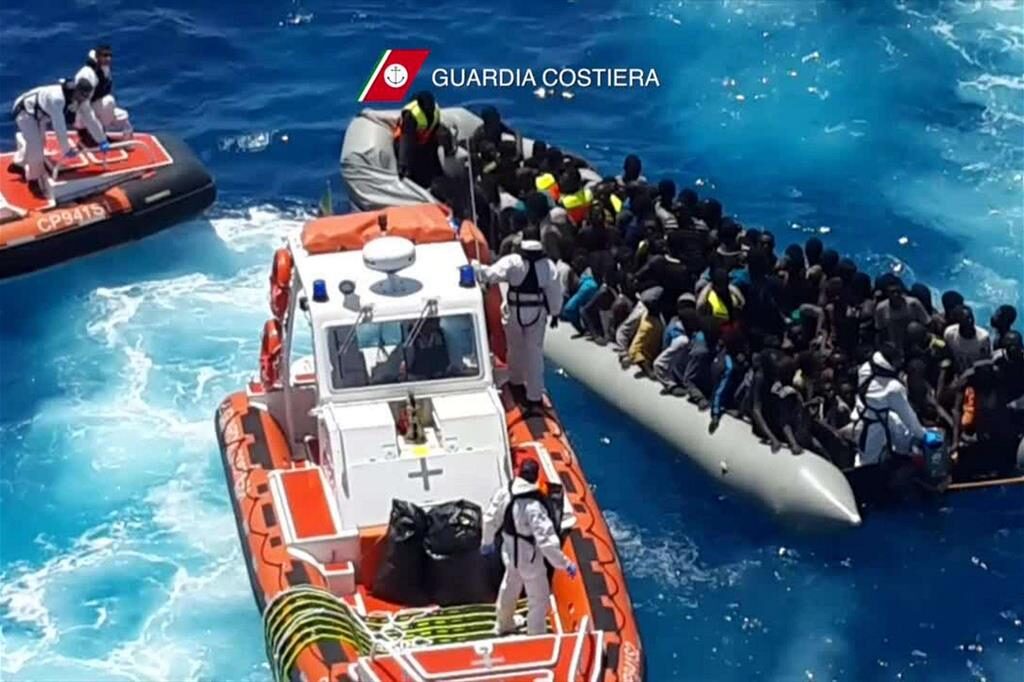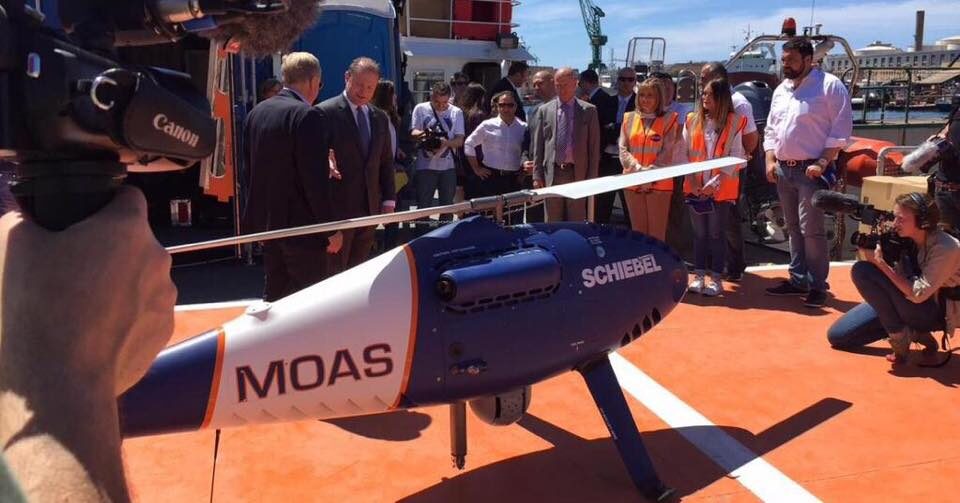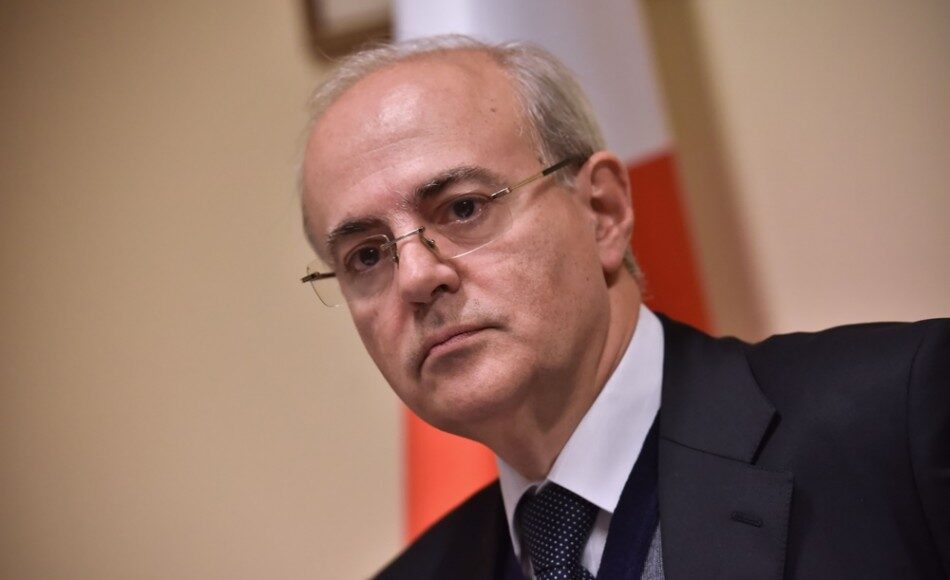INTELLIGENCE AND THE NGO’S OF THE MEDITERRANEAN

There is a heated debate in Italy about some NGO’s which, according to the prosecutor of Catania, Carmelo Zuccaro, are allegedly in cahoots with the human traffickers who profit from the flow of immigrants from Libya to Europe. This debate is emblematic of how a possibly criminal situation can be exploited politically and of how limited the use of ‘intelligence’ really is. The entire ordeal began with a foreign intelligence Service, the German BND, which eavesdropped on communications between vessels used by the NGOs and the traffickers who manage the trade of illegal migrants seeking to reach Italy by boat from Libya. The BND passed the recording on to their Italian counterpart, the AISE, which is, in fact, also in charge of fighting international crime. The BND knows about AISE’s heavy presence on the Libyan territory and of the continuous exchanges of information between the two Services. They know that the issue of illegal immigration has become a social emergency in Italy and they are aware that, in order to solve the problem, there is an ongoing Italian-Libyan collaboration which includes the training of Libyan personnel on board 10 coast guard cutters which are supposed to patrol the coastline and prevent the exploitation of migrants.
How the Services operate
According to legislation, every information about a crime that reaches the ears of the Secret Services is first evaluated by one of its directors, who decides whether or not to pass the information on to the police. In fact, unlike the judicial police, which automatically informs magistrates of any crime, the directors of the Italian Secret Services can choose not to inform the police of the criminal activity that they uncovered during their information gathering.
Why so much freedom?
So why can the Secret Services choose? Simple. Because they operate in an occult manner and their investigative logic is radically different from that of the police. The Services can decide that informing the police could compromise an operation which has a more important goal. Also, the Services operate abroad as well as nationally, where they wiretap communications. If they were to follow the same guidelines as the police there probably wouldn’t be any need for the Services at all.
It is not by hazard that the members of the Services are qualified as public security, not as judicial police. In other words, they are not obliged to arrest a criminal, nor are they forced to inform the judicial authority of a crime, if they are not specifically told to do so by their director.

One of the drones used by the Maltese NGO, MOAS
The BND’s recording In the case of the BND recording, the AISE director decided to tell the judicial authority about it. And since it is information that was received from a foreign Secret Service, the source must remain anonymous; It’s custom procedure. The Services can relate what they know but they will not reveal how they came across the information. In the case of a wiretap, anonymity becomes even more paramount because it is a particularly secret activity. At any rate, the information passed by the Service is always accompanied by an evaluation of its validity and soundness in order to support its possible user. The reliability, in this case, is given by the Italian Secret Service. The BND is a top-rated foreign Secret Service, and one which is notoriously fair in its relationships with other Services (unlike many other Services, even large ones, that collaborate with Italy). Clearly, this gives the information a high level of reliability. When the information landed on the desk of the prosecutor of Catania he read it but could not utilize it. The reason: information coming from the Secret Services can’t be used as evidence but only as investigative clues. In this case, the fact that the BND was responsible for it is irrelevant. Had it been sent by the Italian intelligence or by any other Service it wouldn’t have made a difference, albeit with a technical note attached: in Italy, only the judicial authority can authorize telephone bugging, so the Italian Service would never admit that they acquired any information in this way. Now the prosecutor of Catania, Mr. Zuccaro, knows that the NGO’s that operate along the Libyan coast and the migrant smugglers were in direct contact. He also knows the content of their conversation but cannot use the information to accuse any of the parties. At this point, Zuccaro doesn’t know what to do. Or rather, he knows that if he lets the information slip and waits for investigations to validate it, it could be too late. Either way, it would be nearly impossible for the police to intercept communications at sea. Zuccaro knows that when the smugglers will feel the spotlight, they will take precautions. The smuggler’s activity happens in international waters, with all the consequent problems as to whose jurisdiction it is to pursue the crime. On top of that, the various NGO vessels fly the flags of countries that aren’t very prone to international collaboration. In the light of the above considerations, the prosecutor of the city of Catania decides to publicly denounce what is happening and to state that the evidence he has cannot be used to judge the crimes committed. After Zuccaro’s statement was issued, the problem became political; a political feud between those that defend the NGO’s and those that condemn them. The problem also becomes a case of social conscience, because pointing one’s finger (regardless of whether justly or unjustly) at the NGO’s that assist migrants seems to strike a chord in all the people who believe blindly in their social commitment, despite the potential illegal implications. The prosecutor’s statement therefore sparks a debate between the Catania prosecution and the Siracusa prosecution, which evidently did not receive the information. But there are other prosecutions (Cagliari, Palermo, Trapani) which are investigating the same criminal hypothesis. The statements also become the center of a disciplinary debate, because prosecutors should only speak of evidence that they gathered through investigations. In this case, since Zuccaro doesn’t have any evidence, he should be indicted, say his detractors, not the NGO’s.
The NGO’s of the Mediterranean
So which NGOs operate in the southern Mediterranean sea? There is the Maltese MOAS (Migrant Offshore Aid Station), the German/Dutch Jugend Rettet, the Dutch Stichting Bootvluchting, Médecins Sans Frontières, Save the Children, the Spanish Proactiva Open Arms, the German Sea-Watch.org, the German Sea-Eye, the SOS Mediterranée and the Life Boat Foundation, also German. Fourteen ships that patrol the Libyan coastline, four of which belong to Médicins Sans Frontiéres. The fact that there are many German non-government organizations assisting migrants in the Mediterranean sea justifies the interest of the BND to monitor the activity of their fellow nationals. Last September, the European border agency, Frontex, had raised the issue of a possible “collusion” between the human smugglers and the ships captained by NGOs, which were swift to deploy their assistance where the smugglers directed them. Were they doing so to answer a humanitarian call? Or because the two parties are in ‘business’ together? The above doubts and suspicions were reiterated in another recent report by the agency.
The answer could be in the BND recording, but it cannot be used.

Carmelo Zuccaro, prosecutor of the city of Catania in Sicily, Italy
The other elements There is further evidence that could help us evaluate the accusations. The first is the fact that the ships belonging to NGOs seem to turn off their transponder periodically. The transponder is a device that signals the exact geographical location of the ship at any time. If someone turns it off, it means they have something to hide. Perhaps they do so because their vessels move into the Libyan territorial waters and they don’t want others to know. Even here suspicions do not turn into evidence. But where do the NGO’s get the money to pay for their maritime activity? Keeping ships in the water for such extended periods of time has a high operative cost and, apart from Save the Children and Médicin Sans Frontières, whose budgets are high and financing global, the remaining NGOs should not be able to afford such an expensive activity. Who finances them or how do they raise their money? Can this ‘profit’ justify an illegal business in cahoots with smugglers who get rich off the miseries of so many poor migrants? The Italian NGOs are bound by very stringent regulations on how to raise their money. But here we have Spanish, German, Dutch and Maltese vessels. The prosecutor of Catania could be right once again: he would need letters rogatory with foreign states, translations and a lot of time to investigate the issue. In the meantime, the alleged illegal business would keep reaping profits. The BND could answer these questions as well. But there are other clues, like those gathered by an Italian blogger who used a maritime web service (“Marine Traffic”) to examine the routes of the 14 NGO vessels. The routes in question raise the doubt that there might be some sort of coordination between the NGOs and the people that send out the migrant boats from Libya. After all, the NGOs are always there first. Statistically speaking, 90% of the sea rescues are carried out by them. But when a legitimate suspect becomes a political row things get more complicated. Various parliamentary commissions hear the prosecutors, speak to the NGOs (who say they are offended by the accusations; some were no-shows), along with the heads of the Navy, Coast Guard and even the directors of the two national Secret Services, AISI and AISE, who stated that they never looked into the issue. This is a half truth, or a half lie, because the transmission of the German report to the prosecutor of Catania was not the object of a formal communication from the Italian Service, they just passed on someone else’s report. In other words, since the directors of the two Secret Services are designated by the government, they prefer to stay out of the political mess between those who back the Catania prosecutor and those who condemn him. The director of the AISE, for one – which is the more relevant of the two on the subject – will leave his post next year and has no intention of retiring without at least another prestigious chair under his belt. Zuccaro’s statements have started a chain reaction that could lead to an investigative look into the operations of the NGOs (to fly over the scene when the transponders are turned off, to wiretap satellite communications and ship communications, the obligation to use ships that fly the NGO’s national flag, the presence of police on board the vessels). Among the things Zuccaro said to the Italian parliament Defense Commission was that has not asked the Secret Service to investigate because the results would be useless in a court of law. In a State of Law every government agency, within its set bounds, has the dignity and the obligation to faithfully serve the State to which it belongs. Every information passed on by the Secret Services (regardless of whether it originated from an ally or whether it has a high level of reliability) should be valid evidence in a court of law or in any police investigation. If the source of such information is to remain secret – for obvious reasons – it should not be a determining factor in ascertaining its validity thereof. If this is not the case – as with Italy – people get the impression that the Service is not reliable, that it does not perform its work loyally, that it relay fake information and that its actions are dictated by illegal interests. This kind of approach, which is unlike that of other European countries, is the product of a deep-rooted prejudice that finds its root in the history of Italy’s alleged coups, cover-ups and other forms of antidemocratic embezzlement enacted in the past by the Italian Secret Services. A dark past, often not corroborated by any evidence, which weights nonetheless on the present. In the light of this prejudice, the Italian Secret Services could be dismantled because they are useless. Not just because of the international NGOs and their presumed traffics. It is a matter of principle, especially in the light of the disestablishment of the many,unknown individuals who work, even in dangerous contexts, to keep our nation safe.

